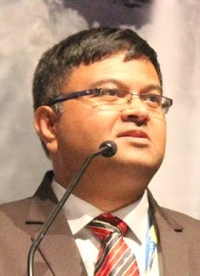Technology in School Classroom: is it scalable?
PosterAstronomy education in low-tech environments: Challenges and solutions
2nd Shaw-IAU Workshop
Wednesday Oct. 7, 2020
UTC: 5:25 p.m. - 6:55 p.m. America/New_York: 1:25 p.m.- 2:55 p.m.
, Thursday Oct. 8, 2020
UTC: 10:25 a.m. - 11:55 a.m. America/New_York: 6:25 a.m.- 7:55 a.m.
"In the last two decades a lot of case studies have been presented across all sciences where technology interventions in school classrooms have a net positive gain in learning. Typically these studies measure success of technology interventions through improvement in subject competency (pre-test-post-test or control-experiment) or increased student engagement, better visualisation or feedback from teachers. However, these case studies rarely touch the larger questions which need to be answered about viability and scalability before technology in the school classroom is advocated as the future of learning. These include availability of stable electric supply, internet, computer hardware etc. The situation is unlikely to change drastically in a timescale of 5-10 years.
Thus, a focus on learning in a low-tech environment is essential. If the intervention is planned with care, almost all goals of technology based interventions can be achieved without invoking the technology. One needs to realise that the purpose of technology intervention in the classroom is not to jazz up the learning process, but good interventions start with core educational objectives. If one is able to analyse objectives behind such an intervention, it is possible to design low-tech interventions with exactly the same learning gains. This last point will be illustrated through an example. "
Biography:
Researcher in Astronomy Education, Mathematics Education, and History of Astronomy in India, General Secretary of International Olympiad on Astronomy and Astrophysics (IOAA), Chair of India-NAEC team





